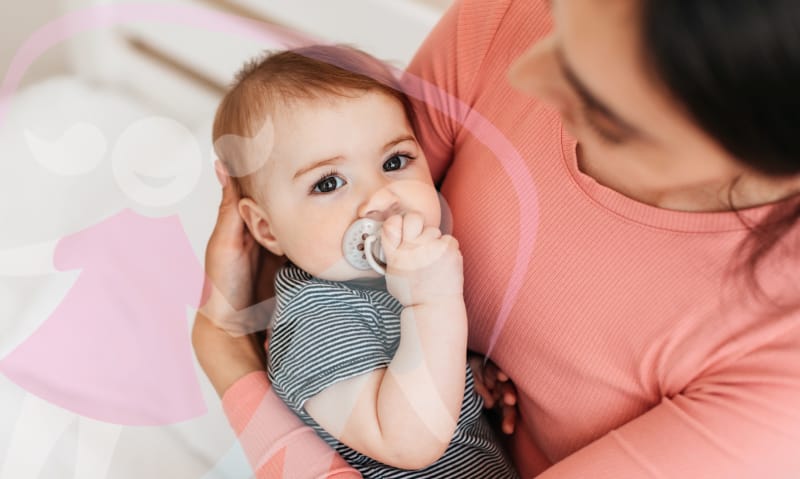Are There Certain Pacifiers That Are Better for My Baby’s Teeth and Mouth?

What kind of pacifier should I be giving my baby?
There are many types of pacifiers out there and many different designs. How does a parent know which one to choose? Is one kind of pacifier better than another? Will using a pacifier affect my baby’s teeth and mouth? At Pediatric Dental Specialists, we are here to help you make the most informed decision about which type of pacifier is recommended for your baby.
How often should a pacifier be used?
A pacifier should be used sparingly by your new baby. Long-term pacifier use can cause dental problems, like crooked teeth, underdeveloped mouths and jaws. An underdeveloped jaw could lead to a smaller than normal airway, which can lead to sleep disorders later in life.
What are the pros of using a pacifier?
There are many pros to having your baby use a pacifier, but many dentists and pediatricians caution that parents should really hold off on their babies using pacifiers until after they have established a strong breastfeeding latch.
- If you are bottle feeding your baby, a pacifier can actually come in handy to help strengthen their sucking habits.
- A pacifier can also be used as a soothing tool; although, a pacifier should not be the first thing parents try to calm their baby down.
- A pacifier is also recommended when a baby is in the NICU because a pacifier can be a close replication of skin-to-skin contact, which is something babies crave.
- Pacifiers have also been recommended for babies under the age of one while they sleep because a pacifier can limit SIDS deaths by nearly 90%.
- Finally, a pacifier also helps babies rely more on their nose for breathing rather than their mouths.
What are the cons of using a pacifier?
Besides the concern of dental problems and sleeping disorders related to restricted airways, many pediatricians and dentists encourage parents to discontinue the use of a pacifier by the age of one. Overusing a pacifier could also make breastfeeding more difficult because a pacifier could cause nipple confusion, and even poor latching, which could affect the way a mother nurses her baby.
Doctors have also seen an increase of ear infections in babies who use pacifiers. Doctors say babies who use pacifiers are three times more likely to develop an ear infection than babies who don’t use a pacifier.
Which pacifier should I choose for my baby?
If you choose to use a pacifier sparingly for your baby, there are some things you should keep in mind.
Pacifiers come in many different types of materials, like latex, plastic, and silicon. Make sure the pacifier you choose is free of BPAs if it is plastic. If you choose a latex pacifier, which is a softer material, these pacifiers will need to be replaced about every six weeks. If you choose a latex pacifier, make sure there are no latex allergies in your family.
You should also choose a pacifier without anything attached to it, like a lanyard or toy. This is because the extra weight of something dangling from a pacifier can affect your baby’s developing jaw, not to mention any extra pieces are considered a choking hazard for your baby.
Choosing a one-piece pacifier makes it easier to clean and less likely to be a breeding ground for bacteria. A pacifier should be cleaned after every use and should not be cleaned by a parent sucking on it. Parents can pass bacteria on to their babies. Always use warm water to sanitize a pacifier before and after each use.
Once you decide on a material for your baby’s pacifier, the next step is making sure the pacifier fits into your baby’s mouth. Not all pacifiers are created equal, so you may have to try a few different pacifier brands and styles to find the one that works best for your baby.
Pediatric Dental Specialists is your partner in your child’s early dental care.
The American Dental Association recommends your child sees the dentist when their first tooth erupts or by their first birthday—whichever comes first. Not only does this allow your dentist to monitor your child’s early oral health and discuss any early intervention strategies, but it also helps you and your child establish a great relationship with your dentist for a lifetime of good oral health. Contact Pediatric Dental Specialists today to book an appointment and have all your pacifier questions answered.